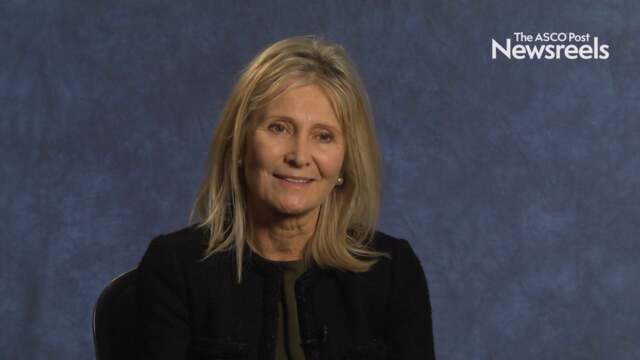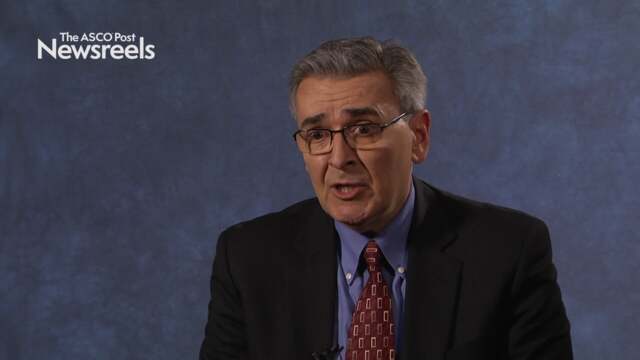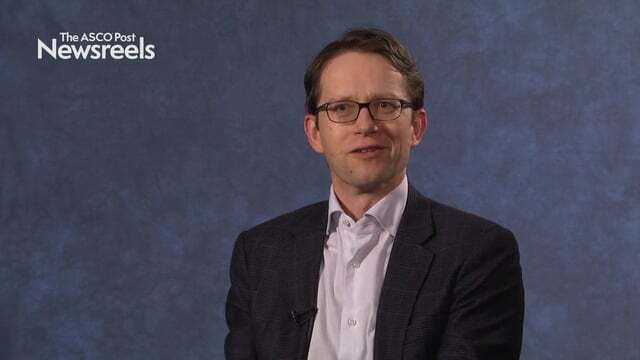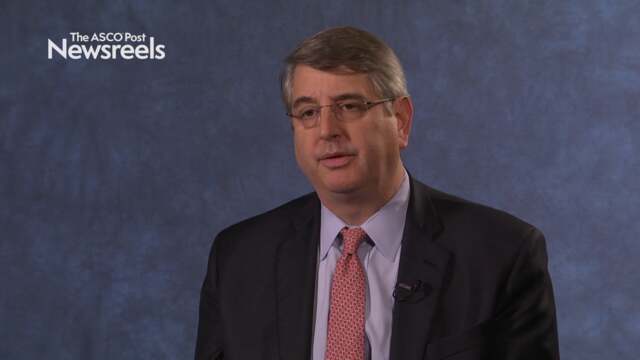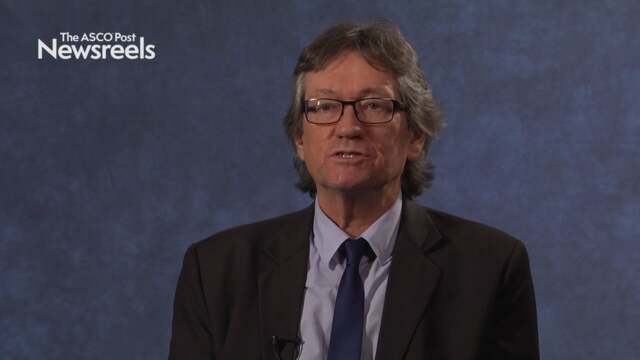Louis Fehrenbacher, MD, on Invasive Breast Cancer: Results From the NSABP B-47 Trial
2017 San Antonio Breast Cancer Symposium
Louis Fehrenbacher, MD, of Kaiser Permanente, discusses study findings comparing adjuvant chemotherapy with doxorubicin and cyclophosphamide followed by weekly paclitaxel—or docetaxel and cyclophosphamide—with or without a year of trastuzumab in women with node-positive or high-risk node-negative disease (Abstract GS1-02).
Silvia C. Formenti, MD, of Weill Cornell Medicine, discusses the high therapeutic potential of combining radiotherapy with immunotherapy and findings that show radiation dose and fractionation seem particularly relevant to the success of abscopal responses. The science has now matured to clinical translation.
Joseph A. Sparano, MD, of Montefiore Medical Center/Albert Einstein College of Medicine, discusses findings that suggest circulating tumor cells 5 years after diagnosis are prognostic for late recurrence in operable stage II–III breast cancer (Abstract GS6-03).
Nicholas C. Turner, MD, PhD, of The Royal Marsden Hospital NHS Trust, discusses the challenges of treating metastatic breast cancer and how liquid biopsies can serve as a guide to genetic phenotypes.
Harold J. Burstein, MD, PhD, of the Dana-Farber Cancer Institute, discusses study findings on a comparison of adjuvant tamoxifen plus ovarian function suppression vs tamoxifen in premenopausal women with hormone receptor–positive breast cancer (Abstract GS4-03).
Richard G. Gray, MSc, of the University of Oxford, discusses an Early Breast Cancer Trialists’ Collaborative Group meta-analysis of 21,000 women in 16 randomized trials, which showed that increasing the dose density of adjuvant chemotherapy by shortening intervals between courses or sequentially administering treatment significantly reduces disease recurrence and breast cancer mortality (Abstract GS1-01).
